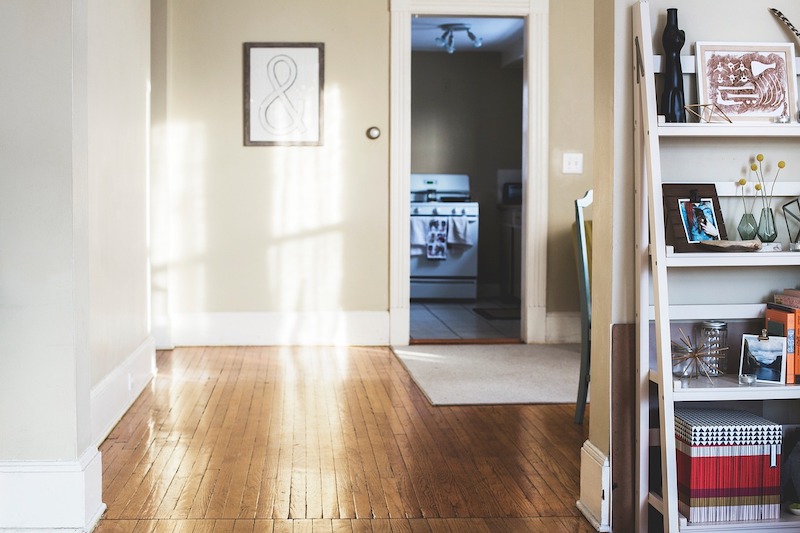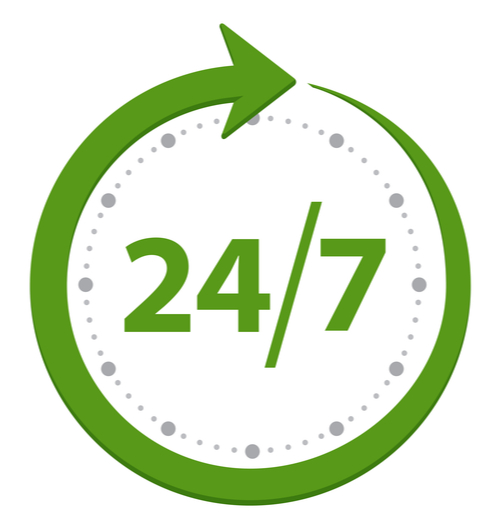We all have that one “sticky door knob” in our home with a lock that requires a little extra muscle to get the key to turn in it. Once installed, it’s easy for homeowners to forget about their home’s interior and exterior door locks. However, keeping your locks in good condition will prevent them from malfunctioning or breaking, saving you money and keeping your home safe.
Bi-annual lock inspections will keep your home secure and ensure your doors continue to open and close with ease. Let’s review some door lock maintenance tips and tricks to preserve your home’s locks.
Clean the Locking Mechanism
If you notice your door handle makes noise or that the door lock is hard to turn with your key a good cleaning may be the solution. Dirt, dust, and grime can all build up in the small mechanism chambers within the lock. Over time, dirt will also collect in and around the strike plate, hinges, and threshold of the door.
All of this build-up must be removed but with the right equipment! Many chemical cleaning solutions can wear down the parts of the lock. Instead, you’ll want to use a bottle of pressurized air with a soft cloth or soft-bristled toothbrush. For door locks, warm water and a mild dish soap cleaner are ideal.
The top areas to clean and inspect include:
- Keyway
- Strike plate
- Latch
- Deadbolt
- Hinges
- Tracks and threshold
Lubricate Your Locks
To avoid internal wear and tear, lubricate your locks at least once a year–even for newer power locks. If you notice a slight hesitation when your mechanical lock is locking or unlocking, you may need to lubricate the door lock’s actuator.
The best lubricant for your door’s lock depends on the lock type and design. If you still have the lock’s manufacturer manual, it should provide insights into the best lubricant for the particular lock. If not, most professionals recommend graphite or Teflon lubricants because they tend to attract less dirt and dust than petroleum lubricants.
How to Lubricate a Door Handle Lock
Following the bottle’s instructions, spray the lubricant into the keyway. Insert the lock’s key into the keyway and begin to push and pull it in and out of the lock multiple times. This will ensure the lubricant spreads evenly throughout the lock.
To further avoid the door sticking, use the lubricant–or a silicone or oil-based lubricant like WD-40–to lubricate the door’s hinges.
Inspect Your Doors & Keys Routinely

Natural wear and tear can cause your doors to sag or become misaligned from the strike plate. If untreated, this misalignment can strain your door locks’ mechanism and run them down quicker than expected. Be sure to test your door routinely by simply opening, closing, and locking it.
Some common indicators of poor door alignment include:
- Scuffs on the floor
- Sticky door knobs
- Deadbolts catching the strike plate
- Having to lift or shift the door to lock it
- Squeaking sounds
Similar to doors, key misalignment can wear down your locks’ inner mechanism. Inspect and replace keys when necessary to ensure the longevity of your locks.
Utilize Professional Locksmiths
Local, reliable locksmiths are the best way to ensure the longevity of your door locks. Through professional installation and annual lock maintenance, locksmiths can quickly determine and alleviate any issues with your lock, key, or door in the most cost-effective way possible.
Residential Locksmith Services
To optimize the longevity and performance of your home’s locks, proper installation, and routine lock maintenance are necessities for homeowners looking to provide a safe and happy environment for themselves and their families. Crown Locksmith has been providing superior commercial, automotive, and residential locksmith services to residents in and around the Atlanta area for over 12 years.
Find out why Atlanta residents choose our friendly, knowledgeable, and professional Atlanta locksmith services for all their door lock maintenance and home security needs. CLICK HERE to schedule a FREE consultation today.
You May Also Like:


